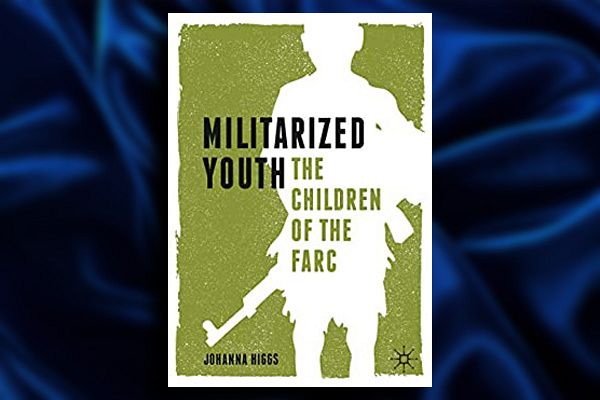Peter Baker explores a fascinating account of the lives of child soldiers in Colombia and the effects that war and terror have on them.
“WRITE A BOOK REVIEW for us,” IA says. “Sure,” I reply, and before you can whisper “Independent Australia” a book pops up in my letterbox titled ‘Militarised Youth — The Children of the FARC’.
A quick look at the synopsis on the back cover soon proves without any lingering doubt this is not a whodunnit where our brilliant sleuth solves the unsolvable crime. Nor is it an action-packed military-based romp where U.S. Delta Forces yet again crush the enemies of the west or, lastly, a lingering romantic saga of spurned love and a happy life ever after.
No, this is a serious academic examination of the sad fact military groups in many parts of the world and from many philosophical groups utilise the young, children ten to 18 years of age, to further their political intentions. The author, Johanna Higgs, a well-respected anthropologist, has centred her studies and script on the experiences of children involved with the Colombian guerrilla group, the Fuerzas Armadas Revolucionarias de Colombia (FARC).
Johanna delves into the specific social and cultural aspects of the Colombian conflict to give a good and balanced understanding of the processes of both militarisation and demobilisation of children caught up in the conflict. She moves away from traditionally held concepts of child soldiers in society and seeks a better, more up-to-date concept of how in today's society children are militarised. She also examines their place in the military, demobilisation and, of no small importance, their place in society after their exposure to life in the military with its accompanying violence and terror.
At this point, I thought the time had certainly come to decide who would be the likely readers of this tome — the academic, the student or someone looking for a quiet read sitting in the shade of the old gum tree. The first two in this list would, I am sure, derive great satisfaction from their reading.
The academic will no doubt supply a peer review of the author’s work for the benefit of his fellow scientists.
The student, probably in the anthropology field, will find much to fill the empty recesses of his or her mind. As Johanna canvasses the reasons why they joined, their lives as child soldiers, social factors relevant to their particular environment and, lastly, life after their enforced service has ended, much information is laid before the reader.
Here, I grow troubled as I ponder the mindset of our young adult who has picked up the book with the intention of enjoying a quiet read in the shade, lost in the imaginary fields of an author's imagination. They are in for a shock. Entertainment this book is certainly not. Nor is it restful or entertaining reading. Informative, certainly. Worrying, definitely.
But I think this begs the question: would I or even should I recommend this as a satisfying read? I think the answer is two-fold. If you are looking for the likes of Poirot, an action hero like Jack Reacher or a story of unrequited love then don’t bother starting. If, however, you can spare a little time to look into the lives, hopes and mistreatments of these unlucky children and consequently think how lucky you and your children are, then its a very worthwhile read.
‘Militarised Youth — The Children of the FARC’ is available from Booktopia for $39.75 (paperback) RRP.
Peter Baker is a retired chartered accountant. He worked in the Australian Taxation Office for some 30 years, leaving at acting Assistant Commissioner level to go into private practice in the NSW Riverina.
 This work is licensed under a Creative Commons Attribution-NonCommercial-NoDerivs 3.0 Australia License
This work is licensed under a Creative Commons Attribution-NonCommercial-NoDerivs 3.0 Australia License
Support independent journalism Subscribe to IA.












